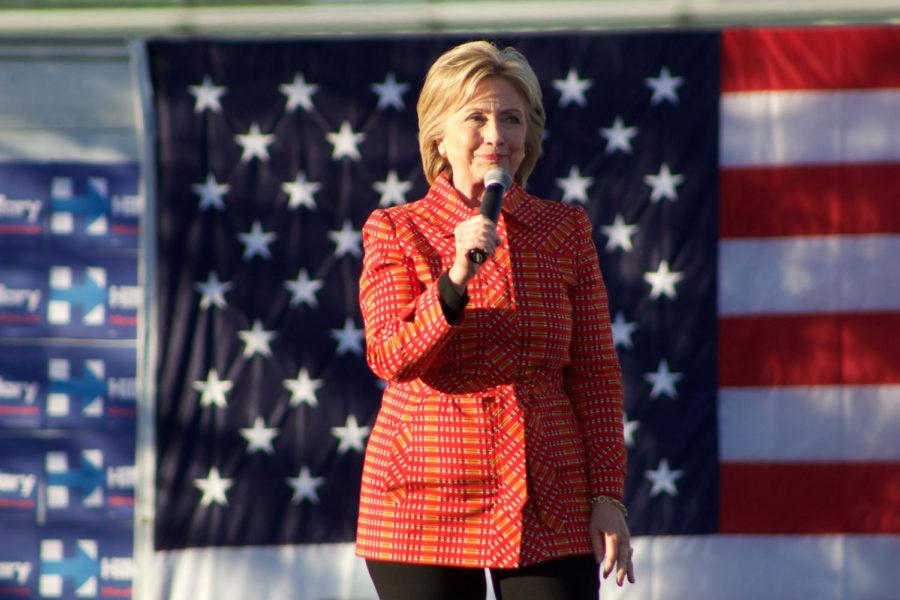Democratic race: What to expect a month before the Caucus
January 12, 2016
Hillary Clinton seemed like a shoe-in for the Democratic nomination in 2008, but everything changed during the last month before the Iowa Caucus.
Clinton seems better positioned at this point against Sen. Bernie Sanders of Vermont, but a few crucial early states will be close, several early polls suggest.
In Iowa, Clinton holds about a six-point lead over Sanders, according to an average of polls from Real Clear Politics, but the latest poll from NBC News and The Wall Street Journal shows Clinton with 47 percent and Sanders with 44 percent, which is within the poll’s margin of error.
In New Hampshire, the second voting state, Sanders has a four-point lead over Clinton in the Real Clear Politics average of polls, but the NBC/WSJ poll once again shows the race within the margin of error.
With such a close race, who can pull through? Once again, in Iowa, ground game and operation is important, said Mack Shelley, university professor of political science, and Tim Hagle, professor of political science at the University of Iowa.
“You have to look at ground game of both campaigns,” Hagle said. “Both Clinton and Sanders have pretty decent ground games, a lot of staffers anyway. So the difference may come down to enthusiasm between those two.”
Both campaigns have dozens and dozens of paid staffers and volunteers around the state, and each candidate does a decent job at filling up large venues for events.
“Are people really excited to vote for one or the other is the question,” Hagle said. “I think in that category, Sanders has it over Clinton.”
Shelley said he is not sure polling will change over the next few weeks, so it may be an organization question, but not the same style of organizing that voters have only started to see in the past few cycles.
“One thing that seems to get more important each cycle is the role of social media and that makes it a little more harder to figure out who is really going to show up,” Shelley said. “You can get ahold of a lot of people through Twitter accounts, and that has become universal among younger folks. That may have some implication in this cycle.”
You may not need to win Iowa and New Hampshire, but it definitely does provide some momentum. Many observers have pointed out that if Sanders does not win Iowa or New Hampshire, his campaign may not have the momentum to move forward.
“The usual three tickets out of Iowa theory isn’t really going to apply for either party this cycle,” Hagle said. “Even If Clinton wins [in Iowa], pretty much everyone expects Sanders will win New Hampshire, but that means he has to win in Iowa and New Hampshire to get any kind of momentum to pick up steam in South Carolina and other states.”
Winning both states will give him momentum past the early states, but Clinton still holds a sizable lead in many states.
There is also a third figure in the race: Former Maryland. Gov. Martin O’Malley, who was once considered the most formable challenger to Clinton.
But since the arrival of Sanders, who has fired up the most progressive Democrats in the party, O’Malley has struggled since the start of his campaign, not even breaking single digits in any poll.
He has run a campaign similar to Clinton and Sanders, with many volunteers in early states. O’Malley has also challenged his opponents, saying as governor he has actually gotten things done instead of flip-flopping on issues like Clinton and not actually getting any legislation passed in the Senate.
But at this point, Shelley said, O’Malley does not seem to be much of a threat to any campaign. He did mention, however, per Iowa Caucus rules, which require a candidate to be “viable” during the caucus process, the Sanders campaign may be able to lure over voters, which may give him an advantage.
The Iowa Caucus is scheduled for Feb. 1, with New Hampshire, South Carolina and Nevada in the following weeks.

















